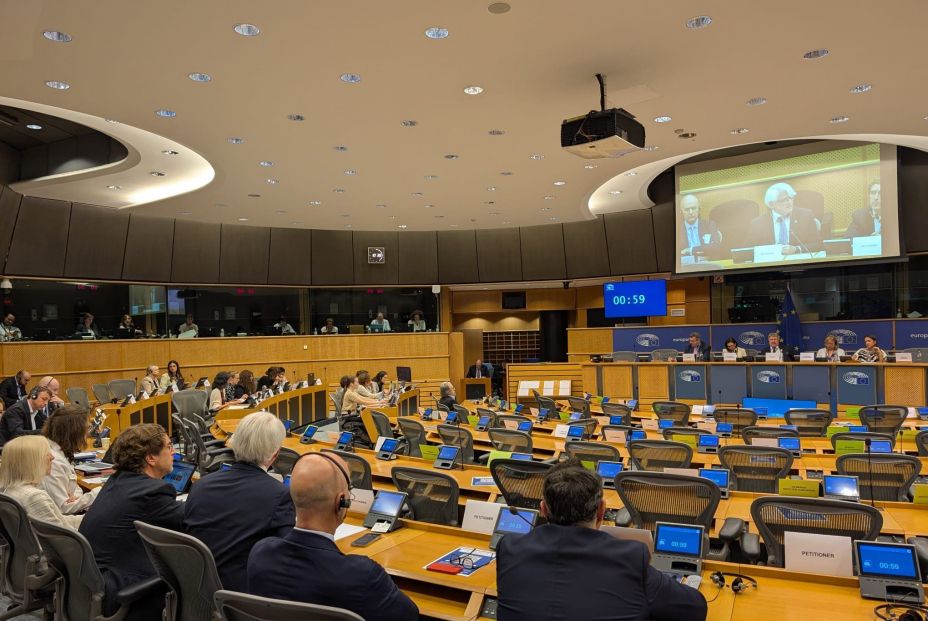Mutualists for the Future insists that The European Parliament continues studying the situation of Spanish mutualists. The organization considers that the community Executive “does take sides and considers that There are no violations of European law in relation to the situation of Spanish mutualists“In this way, the platform, which defends preserving alternativeity in social security mutual societies, denies that Parliament has urged the Spanish Government to find solutions for mutualists that comply with EU laws.
The Mutualistas x el Futuro (MxF) association has issued a forceful reply to the General Council of Spanish Lawyers (CGAE)who has given that interpretation. In the opinion of Mutualistas por el Futuro, that “the Commission urges us to continue with a constructive dialogue aimed at solutions that fully comply with the legislation, policies and recommendations of the European Union” is a decontextualized interpretation of the evaluation carried out by the European Commission before the Petitions Committee (PETI) of the European Parliament, which is in charge of channeling citizen complaints to the European institutions. In fact, the CGAE wrongly attributes the statements of the Community Executive to the PETI Commission.
“As a context, on July 17, the PETI Commission addressed the situation of Spanish mutualists in a session that included the participation of the European Commission,” the platform details. “Specifically, the Community Executive stated that did not appreciate infringements of European law in relation to the situation of Spanish mutual societies and recalled that the regulation of alternative mutual societies is a responsibility of the Spanish institutions and not of the European Union. He subsequently reaffirmed these statements in his final evaluation, which was recorded in writing in a PETI Commission document.
“For those of us who defend a strong, transparent and open mutualism, this positioning of the European institutions is especially relevant,” say Mutualistas por el Futuro. “It reinforces the idea that the alternative model can continue to be a valid and regulated option within the national framework, and that its evolution must be addressed with guarantees, dialogue and respect for acquired rights,” they add.

The position of Spanish Lawyers
From the General Council of Spanish Lawyers, they assure that the European Parliament has sent it to its president, Salvador Gonzaleza letter sent by the Petitions Committee itself, with that response. They assure that “the Petitions Committee of the European Parliament has asked the Spanish Government to continue work aimed at offering alternative mutualists a solution in accordance with the legislation and policies of the European Union.”
Spanish Lawyers presented his petition to the European Parliament in November 2024 and held meetings with MEPs from different political parties.
The Spanish Lawyers understand that it is the State that is ultimately responsible for guaranteeing decent pensions to those, as is the case of lawyers, who have contributed for decades through alternative mutual societies protected and controlled by Social Security.
Collection of signatures
The Mutualists for the Future movement seeks preserve alternativity in social security mutual societiesa path that has allowed thousands of professionals to exercise their right to contribute outside of the RETA for decades. At this time, it maintains an open collection of signatures, with which they seek to show that there are many mutualists who defend this model. “We demand a fair reform, with guarantees, that respects acquired rights and maintain the plurality of models. “You cannot legislate ignoring those who today contribute and trust in mutual societies,” they declare from the movement.
Alternativity is a legal regime recognized by Social Security, which they replace, that allows certain registered professionals to choose between contributing to the RETA or doing so through the mutual insurance company corresponding to their professional association. Its financial method is “capitalization” and its pension calculation method is “defined contribution” backed by accumulated capital.
Professionals from sectors such as law, medicine, architecture, economics, engineering, attorney general, among others, have legally chosen to channel their contributions through their own professional mutual societies, thus building their social security and retirement savings systems in an autonomous, flexible and adapted to their needs.
Despite this, the movement denounces that this alternativity system is in danger: «Various initiatives, promoted mainly by minority groups, propose remove this rightwhich would mean forcing thousands of professionals to unilaterally join the RETA, without offering guarantees about their contributions made over the years to their mutual societies.


